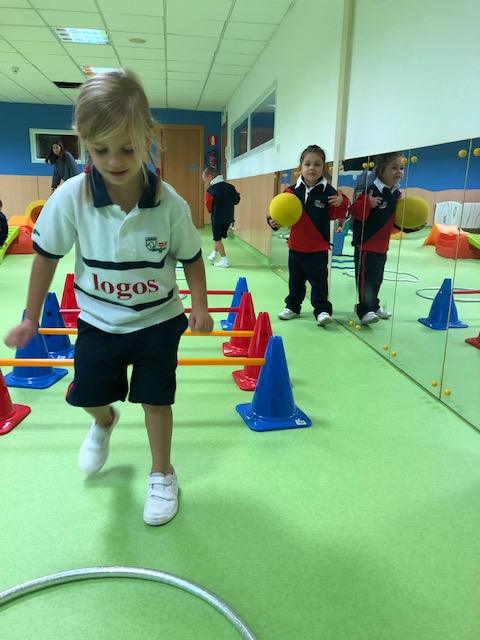Psychomotor skills involve a close relationship between the body's motor skills and the cognitive, sensory and emotional. This helps children to discover and express a language through their body. We can distinguish between fine and gross psychomotor skills. We have already talked about the former and today we will focus on explaining the latter.
Unlike fine psychomotor skills, which deal with precise movements and activities such as hand movements, gross psychomotor skills involve broader movements related to changes in body positions and the ability to maintain balance.
What is gross psychomotor skills?
Gross psychomotor skills are a set of motor skills performed by the child in a coordinated and balanced way during its development. In the first years of life, it plays a significant role, since it encourages the development of different skills. Gross psychomotor skills precede fine psychomotor skills, so it is vital to work on more complex movements involving other parts of the body.
These movements involve various muscle groups and parts of the body, for example: control of the head, arms, legs or torso, among others, to carry out different activities: walking, jumping, running, swinging, turning on oneself, balancing on one foot, etc.
Benefits
Without a doubt, working on body movements through gross psychomotor exercises allows children to strengthen their muscles and acquire certain motor skills that promote general body control and contribute to the development of their ability to express themselves bodily.
As children develop their gross motor skills, they become more confident, which is vital, not only for the discovery of their environment, but also for the awareness of their body, the strengthening of their self-esteem and self-confidence, which is decisive for the development of their personality.
Gross psychomotor skills are essential for the development of cognitive functions. Recent advances in the area of neurolearning provide valuable findings on the influence of psychomotor skills on attention and learning.
It also helps to prevent different pathologies that may require the consultation of specialists at an early age, such as therapists, physiotherapists or psychomotor therapists.
Activities to develop it
There are different activities that can help children develop their gross motor skills in which parents can also collaborate to encourage their execution. Some examples are:
1. Skip
Performing various jumps on different surfaces helps to develop gross psychomotor skills, there are many ways to do it and increase its complexity. For example: jumping on one foot or jumping rope, which is great fun for children.
2. Obstacle course
They are didactic games with diverse possibilities for discovery and learning, which help children to make decisions and strengthen their self-confidence.
3. Playing with big balls
They are perfect for sensory and visual stimulation, spatial organization, coordination and balance.
4. Climb
Climbing in a stimulating and safe environment contributes to the development of motor skills that require the coordination of various parts of the body.
5. Throwing cans
By making a pile of cans and using a ball to throw them, the child can work on his gross psychomotor skills. In this activity he trains his aim, coordination and strength control.
At Logos Nursery, a nursery school located in Las Rozas de Madrid, we want to help the child develop different gross motor skills, but we also understand that these activities should not be a sacrifice with boring routines, so we use different didactic means.
We have classrooms exclusively for psychomotor skills with "friendly rules", which allow children to develop their gross psychomotor skills while learning rules in a group environment.


